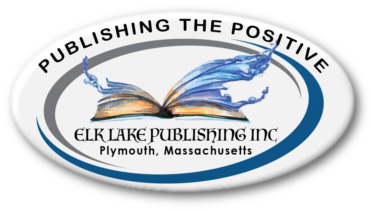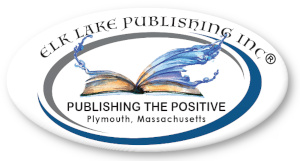Timothy Lewis
Why I Started Writing:
I started writing all because of Agatha.
It was a meaningful encounter, unfolding scene by scene on a fall, non-football Friday night when I was eleven. Agatha wasn’t an adult mentor, classmate, nor the exceptional girl of a young boy’s dreams. Agatha was a mystical character in my local high school’s senior play: All Because of Agatha by Jonathan Troy.
The comic storyline concerned the trials and tribulations of newlyweds who’d purchased a haunted house. More than just plot proved intriguing. It was the combination of acting, sets, lighting, costumes, makeup, all enriched with laughter and applause. I was mesmerized. When the final curtain fell, I knew I wanted to one day write a play.
The stage wasn’t a total stranger. At age six, I’d played Peter in a theatrical adaptation of Beatrix Potter’s Peter Rabbit. Not realizing I’d scored the coveted lead, I thought the drama teacher didn’t like me because of her casting of the mischievous, disobedient rabbit. Even so, I was much too shy to relish first-grade stardom.
Perhaps I should have.
In the fifth grade, I declined to audition for a character in Jack and the Beanstalk. My sentence? To play the bottom of the human beanstalk—ugh—and the south end of Jack’s cow—no kidding, no comment, lesson learned. The following year’s sixth grade production of Cinderella listed me in the program as The Town Cryer. Thankfully, none of my peers picked up on a medieval role that could’ve been modernized into an embarrassing pun.
I repeat, lesson learned.
So my extracurricular pursuits in junior high and high school included music, not theater. Then during my senior year in college, I decided to take a chance and increase my artistic horizons. Though an agriculture major, I auditioned for The Music Man, landing a minor role as a singing traveling salesman. Music/theater majors were expected to participate. Ag majors, never, making me an anomaly. The dramatic seed planted all because of Agatha had finally begun to sprout.
That same year, my Sunday school teacher published a play, and then wanted to co-create a musical drama. When she asked me to compose the ten or so tunes, I agreed. Upon production, we garnered immediate acclaim, which led to a front page story in the university newspaper. Thus, with visions of Rogers and Hammerstein dancing in my head, music education became my new major course of collegiate study; agriculture my minor. We collaborated on several musicals together before I graduated, taught school, and began writing shows on my own.
Whereas success in the creative arts arrives tardy for most, it creeps like chilled molasses for playwrights. (I’m sure poets would argue.) But make no mistake, performance royalties can be sticky. So after penning twenty plays, and composing over a hundred songs, I decided to learn how to write novels.
By God’s grace, I’d met and married my soulmate—a registered nurse—who believed in me much more than I did in myself. (Marry a nurse became my mantra for starving writers.) We started a family. She went back to work and I became Mister Mom. Then as naptime and our church’s preschool program allowed, I took graduate hours, completed a course in children’s literature, and wrote my first, novel length manuscript.
I began writing all because of Agatha. I continue due to a desire to share the goodness of story. In truth, it was God’s love, mercy, and abundance that not only gave me courage, but opened some much needed doors. When I reflect back to my role as Peter Rabbit, I can see God’s perfect guidance throughout my career; feel His all powerful presence.
Yet whenever I’m mischievous, or perhaps a little disobedient ….
It’s all because of Agatha.
Authors Who Have Influenced Me:
I was blessed to be raised in a house bursting with books. My mother was an elementary school librarian, who swore she came by the profession naturally. Here’s why:
My great-grandmother loved to read and often read Hurlbut’s Story of the Bible to her thirteen children. One of her daughters—my grandmother—carried on the valued tradition, as did my mother. My wife and I read a modern language version to our only child, a daughter. For me, Bible stories laid a solid foundation for my faith, marriage, family, and writing career.
In the latter 1920s, my grandmother purchased My Book House, a six volume collection of stories and poems compiled for children by Olive Beaupre Miller. My mother was raised on them, as was I. By the time my twin sister and I were born, the number of volumes had doubled. I still love reading The Cock, The Mouse, and The Little Red Hen. Yet in all honesty, I’ve never seen a Purple Cow.
My mother and grandmother were also fans of author Mal Lindman, who penned the beautifully illustrated books about the adventures of dual sets of triplets in Sweden: Snipp, Snapp, Snurr, and Flicka, Ricka, Dicka. Simply written, each story contained conflict, resolution, and an important moral truth.
Like many a preschooler, one of my favorite books was A.A. Milne’s Winnie-the-Pooh. I remember sitting atop my mother’s lap and pointing at the colorful pictures. Surely I was learning setting, characterization, and that a bear—or boy—must be wary of heffalumps. Furthermore, he must never poke his head into a honey jar.
After I began to read on my own, I never missed an episode of Charlie Brown and the Peanuts gang in the Sunday comics. Even though creator, Charles Schultz, wasn’t a novelist, he knew every strip must have a beginning, middle, and end. He also used cliffhangers, hooking my attention week after week. Last year, I enjoyed reading his biography. Schultz endured his portion of struggles, some of them life-long and subtly reflected in his work. Yet he wasn’t afraid to incorporate spiritual truths. It’s why I keep a Peanuts calendar on my desk.
In the third grade, I was introduced to author Beverly Cleary. Not face-to-face, but through her wonderful series about Henry Huggins and his dog, Ribsy. And who could forget Ramona Quimby, the pesky neighborhood character on Klickitat Street who constantly interrupted Henry’s plans. Eventually, Henry grew to respect Ramona, which taught me how characters must grow and change. And isn’t Klickitat Street fun to say. Say Klickitat Street fast, three times. It sounds like empty train cars on a passing track.
In the sixth grade, our teacher read aloud A Wrinkle in Time by Madeleine L’Engle. I was instantly captivated, hoping—no, knowing—that good would triumph over evil. Our teacher also read The Twenty-One Balloons by William Pene du Bois. As before, I found myself totally immersed in a fantastic adventure, where science holds hands with grit and imagination.
At some point in my childhood, I tried reading Kenneth Grahame’s The Wind in the Willows, but put it down. The language was over my head. As an adult, it’s one of my favorite reads. A mix of humor and wisdom fills each page. Each Christmas, my wife and I read chapter five aloud—Dulce Domum—which translates Sweetly at Home. It’s where Mole accidently sniffs out his long-lost, underground house one snowy Christmas eve. What could be better than a blazing hearth, a tin of biscuits, a roll of German sausage, and childlike field mice singing carols.
It’s hard to be a Texan without reading Lonesome Dove by Larry McMurtry, a novel I enjoy over and over again, purely for pleasure. I’ve ridden horseback through some of the same rugged country. As an author, I’m amazed at McMurtry’s talent regarding viewpoint. He’s one of the few writers I know who can seamlessly have POV in five different heads, in the same paragraph, and get away with it. Who’s his editor???
I relish reading prose that’s beautifully crafted, weaving its way through deeply layered stories; particularly Southern fiction where Pat Conroy is a master. In Beach Music, it’s as though his sentences encompass all five senses. It’s the level of writing excellence I strive for.
In regard to excellence, the author who’s influenced me most is Sheldon Vanauken. For those unfamiliar with his books, he wrote A Severe Mercy, one of the most exquisite and tender love story memoirs ever penned. Winner of the National Book Award, it chronicles the unique relationship he shared with his wife. Yet because of her tragic death, he came to know Christ personally. C.S. Lewis called it a severe mercy. While attending Oxford University, Vanauken and Lewis became good friends. They shared meals together, discussed theology, and corresponded about the rigors of faith and service. Also the joy. Many of these letters are included in A Severe Mercy. Sheldon Vanauken is the author who inspired me to write Forever Friday, and has had a profound impact upon my own marriage.
Books I Have Written:
- Forever Friday: A novel based upon a secret collection of antique postcards I discovered at my great-aunt and uncle’s estate sale. In fact, I rescued them from the trash bin. Mounted inside matching photo albums were dozens of postcards, each with an original love poem on the back. Some of the colorful card faces were printed prior to 1900.
The poet … my great-uncle.
The recipient … my great-aunt.
Beginning in 1926, he mailed her a postcard/poem every Friday for sixty years, even though they lived in the same house. And no one knew. They couldn’t have children, so had willed most of their possessions to my mother.
Forever Friday is a dual period novel about an estate salesman who’s given up on love. When he discovers a similar set of postcards, he uses them to piece together a long-lost romance that might reveal the secret to a lasting marriage. The book has been translated into six languages. Moreover, it’s only the second inspirational crossover novel to be featured in Reader’s Digest Select Editions in over twenty-five years. It’s being considered for film.
- The Glitter Effect: Could solving a major university’s bicycle theft case finally make Hal Tanner a winner; or will he discover that being the best has a much deeper meaning … because winning can be deadly.
Twelve year old Hal Tanner vows to be the best skateboarder in the sixth grade when school begins in the fall. At least, that’s what he tells his closest friend, Jerry Morris. Secretly, Hal doesn’t consider himself to be best at anything. He dreams of being a winner like his older brother Rick, the newspaper editor at Southern State University (SSU). Hal hopes his skateboarding efforts will make him popular among his peers and earn him a cool cell phone, even though he knows serving God is more important than status or material things. When Rick invites Hal and Jerry to spend part of their summer vacation at SSU, Hal is ecstatic. Then as dozens of bicycles mysteriously disappear from campus, Hal and Jerry investigate, skateboarding into the dark underworld of a crooked university cop and ring of cutthroat thieves. Only after the boys befriend Wiley—a decorated American vet injured in the war in Afghanistan—does Hal discover the true meaning of being a winner. But can his new found knowledge save his life, and Jerry’s, before it’s too late?
- I’ve also completed:
a young adult western romance set in Texas in 1886.
a Southern fiction historical love story set in the 1960s.
Watch for updated information about these titles!
What I'm Working On Now:
I’m in the process of writing another dual period love story, much like Forever Friday, plus a contemporary love story that includes country music. As soon as I can release the titles, I’ll post them here.
Ten Books or More, Order Here! Discounts Available


